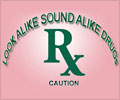
The generic treatments -- a cancer pain compound and a muscle relaxant -- have US combined sales of around $300 million per year.
Israel-based Teva first announced in May its intent to acquire Pennsylvania-based Cephalon for $6.8 billion, including debt, overtaking a rival bid from from Canada's Valeant.
The FTC had stated in a complaint that market competition would be reduced and prices raised due to the acquisition.
The US agency said it will require Teva to sell its rights to its transmucosal fentanyl citrate lozenges used to treat cancer pain. Cephalon already has a branded version of the drug, called Actiq.
Three generic versions exist, but two of them are owned by Cephalon and Teva, meaning a merger would result in the firm having an 80 percent share of the generic product.
Advertisement
"This settlement preserves competitive markets for current generic drugs, which are key to holding down the cost of health care for consumers," FTC Bureau of Competiton chief Richard Feinstein said in a statement.
Advertisement
Provigil, whose sales topped $1 billion in 2010, is used to treat excessive sleepiness caused by narcolepsy or shift work disorders. No generic versions of the drug currently exist.
Source-AFP








